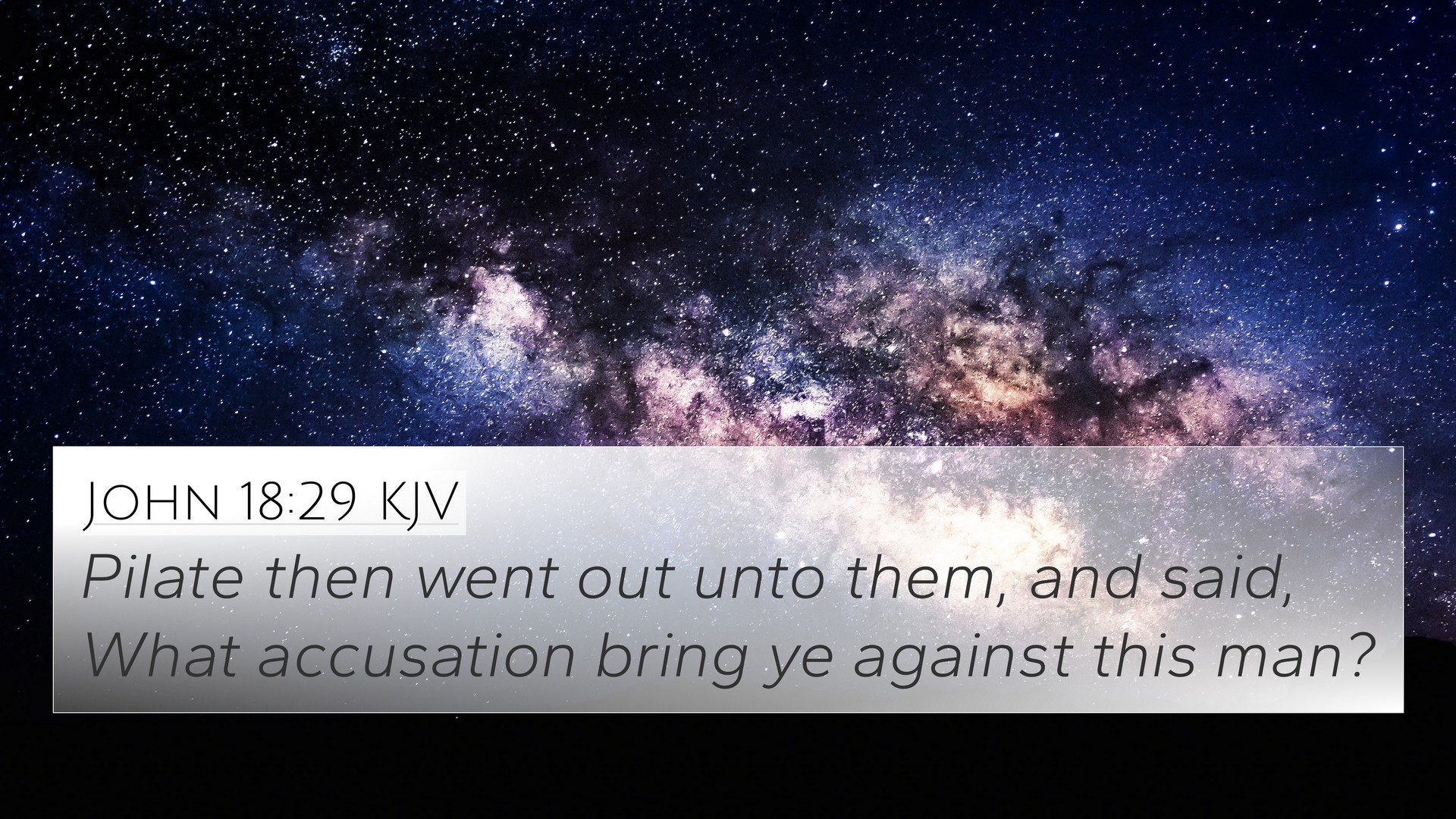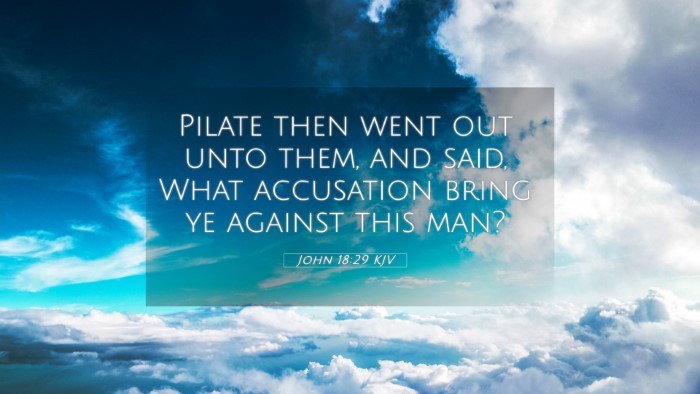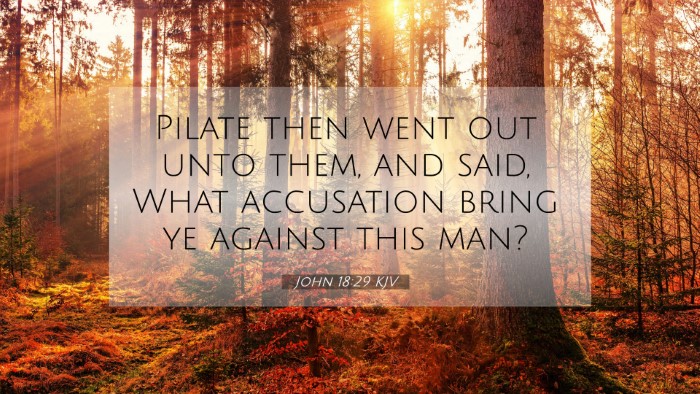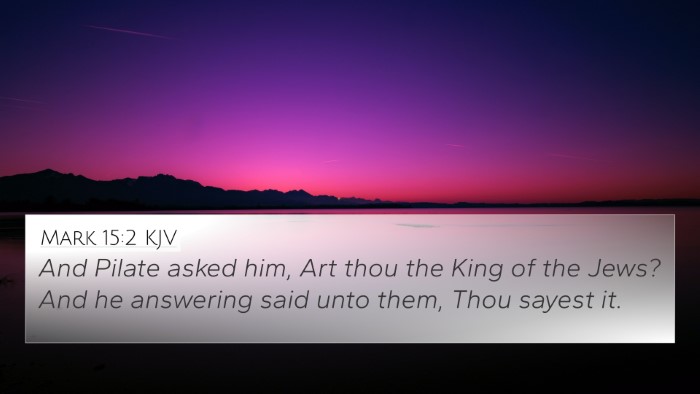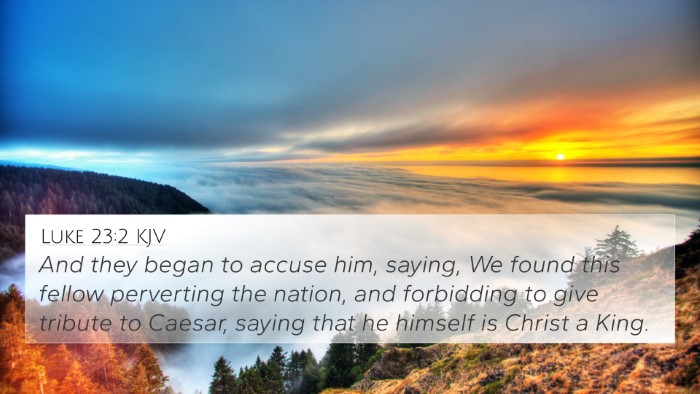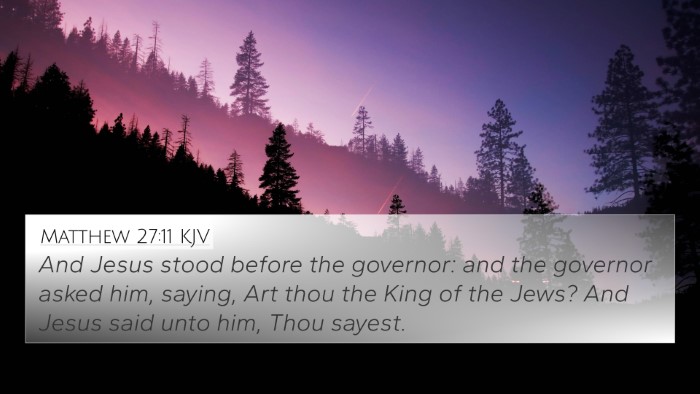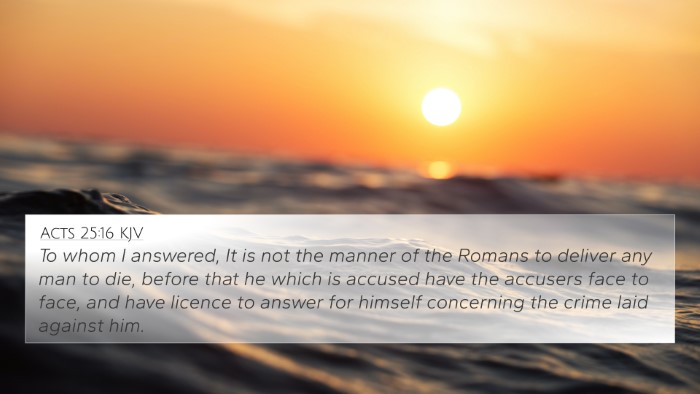Understanding John 18:29
John 18:29 presents a pivotal moment in the trial of Jesus, where Pilate engages with those bringing Jesus before him. This interaction is significantly layered with theological and historical implications.
Verse Analysis
In John 18:29, the verse reads:
"Pilate then went out to them and said, 'What accusation do you bring against this man?'"
Summary of Insights from Public Domain Commentaries
Commentaries from respected theologians like Matthew Henry, Albert Barnes, and Adam Clarke shed light on this verse, offering deep insights into its meaning and implications.
-
Matthew Henry:
Henry emphasizes the importance of Pilate’s role as a governor standing between the Jewish leaders and Jesus. His question highlights the serious nature of the accusations, demonstrating the necessity of a clear charge against Jesus before proceeding with any judicial actions.
-
Albert Barnes:
Barnes points out that this inquiry by Pilate reflects a legal obligation to hear the specific accusations prior to any examination. This reveals a profound disconnect between the religious leaders and the Roman legal system, showcasing the attempts of Jewish leaders to impose their will without proper charges.
-
Adam Clarke:
Clarke delves into the historical context, mentioning the hostility between the Jewish leaders and Roman authorities, which led to this trial. He also notices the irony present in Pilate's questioning, as the powerful Roman governor is less concerned about justice and truth than he is about maintaining order.
Thematic Connections
This verse resonates with several themes in scripture and offers numerous cross-references that connect the New Testament with the Old Testament and other biblical narratives.
Cross-References for John 18:29
- Matthew 27:12-14: Jesus remains silent before his accusers, similar to how He is treated in Pilate's court.
- John 19:10: Pilate's struggle with authority and truth comes to a head, highlighting the complexities of Jesus' kingship.
- Luke 23:2: Accusations presented against Jesus, connecting to the trial setting in John.
- Isaiah 53:7: Foreshadowing of Jesus' silence and injustice during trials.
- John 1:11: The rejection of Jesus by His own people creates a parallel to the accusations levied against Him.
- John 8:46: Jesus challenges the accusation of sin, further illuminating the falsehoods surrounding His trial.
- 1 Peter 2:23: Addressing Jesus' reaction to accusations, bringing in the theme of endurance amidst suffering.
- Acts 4:27-28: Highlights the collusion between leaders against the Lord's anointed, tying back to the events in John 18.
- Psalm 69:4: Reflects on the unjust treatment and accusations faced by those who serve God faithfully.
- Jeremiah 11:19: The theme of the innocent suffering unjustly can be seen in connection to Jesus' experience.
The Importance of Contextual Understanding
John 18:29 can be better understood through the lens of cross-referencing biblical texts. The contextual backdrop enriches the reading and allows for a deeper exploration of themes such as justice, authority, and the fulfillment of prophecy.
Tools for Bible Cross-Referencing
Engaging with cross-references enhances one’s understanding of scripture. Utilizing tools such as a Bible concordance or a Bible cross-reference guide can assist in identifying connections between verses.
How to Use Bible Cross-References
The practice of cross-reference Bible study can deepen insights by illustrating how various biblical passages resonate with one another, creating a comprehensive framework for understanding.
Correlating Themes Across the Scriptures
Understanding how John 18:29 connects to broader biblical themes is vital for a comprehensive study. Cross-referencing Biblical texts also facilitates an inter-Biblical dialogue that enriches theological understanding.
Interpreting Biblical Themes Through Cross-References
By analyzing texts in relation to one another, individuals can gain deeper insights into the narrative consolidated in scriptural teachings, enhancing both personal growth and communal theological discussions.
In conclusion, John 18:29 is not merely a question posed by Pilate; it reflects the intersecting themes of authority, legality, and the fulfillment of salvation history. By utilizing cross-referencing tools and engaging with thematic analyses, deeper spiritual truths can be unveiled in the sacred text.
